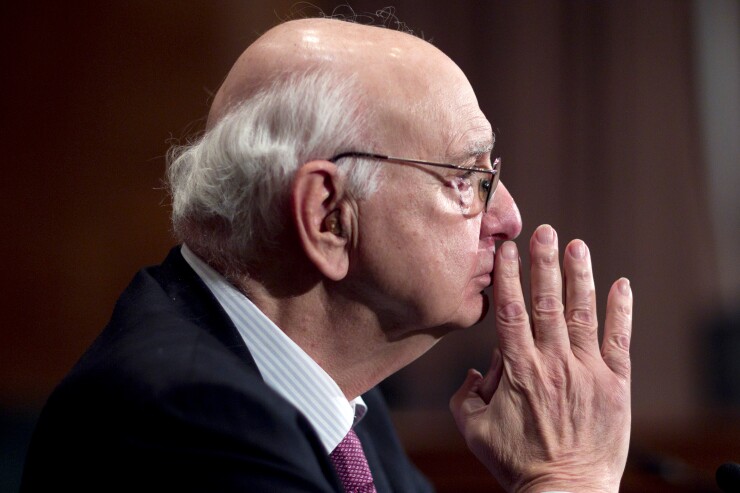On a snowy winter afternoon back in 2013, I trudged up to the Federal Deposit Insurance Corp. headquarters on 17th Street in Washington to be among the first to behold the Volcker Rule, one of the more elaborate regulatory conditions imposed by Dodd-Frank.
The rule's concept, as

But upon seeing the proposed Volcker Rule for the first time, the most surprising aspect of it was how enormous it was — turning a simple principle into an actionable rule proved to be less straightforward than one might think. Part of that is because banks have a legitimate interest in not only participating in markets but making markets, and that involves taking ownership stakes or holding assets in its inventory. But with some pain and negotiation, banks have made it work, and they have made it work because the law says there should not even be an appearance of or potential for a conflict of interest between banks and their customers.
Now it's Congress's turn to demand of itself the same level of propriety that is has from the banking industry: pass a law barring members of Congress from holding or trading individual securities.
This charge is Democrats' alone to pursue, and they would have good reason for doing so. After many, many months of exhausting internal deliberations, President Biden last week signed the
So if Democrats want to keep up their momentum in the midterms' homestretch, they would be wise to take up the Ban Congressional Stock Trading Act after the August recess. The bill — or one like it — would help their chances for two reasons: It eliminates a glaring

Substantively, the bill bars members of Congress or their spouses from owning individual securities, instead compelling members to put their assets in a blind trust. Members of Congress are
As for the politics, scandals around members of Congress enriching themselves at the public's expense are as old as
So if there is more than a purely theoretical potential for a conflict of interest among lawmakers, Congress should be willing to hold itself to the same standard it expects for everyone else. The principles of fair play and rule of law are what make the United States the home of the deepest and most liquid markets in the world, and those principles have served us well. So if it's good enough for banks, it's good enough for Congress.
Would Congress put those kinds of limitations on itself? Historically speaking, it tends to do so only in the face of overwhelming public pressure, and that pressure could be building.
Democrats are
Rules only work if they apply to everybody, and that principle applies whether you're in kindergarten or in Congress. And if Congress can demand that banks be on the level, banks can and should demand the same from their elected representatives.
So members of Congress, unite! You have nothing to lose but your capital gains.





